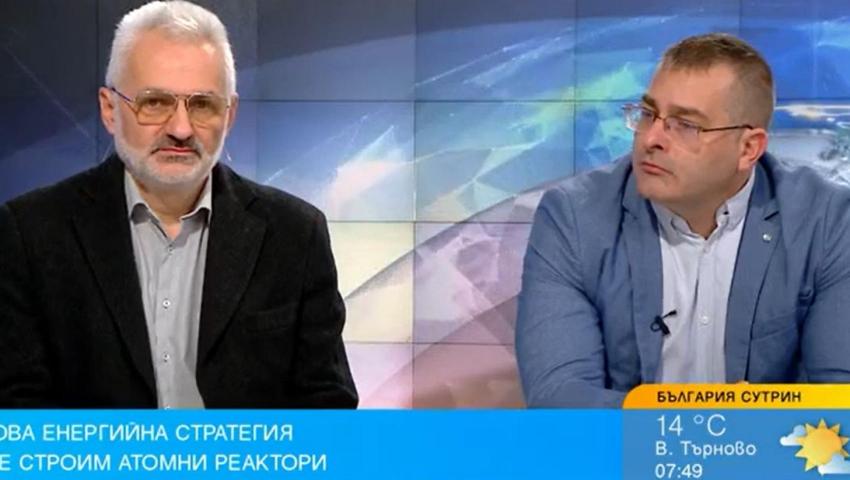How long can the coal plants work and will Bulgaria become an importer of electricity?
2030 is a short term for the closure of thermal power plants, believes Kremen Georgiev from ATDB

Source: Bulgaria On Air
An ambitious strategy for the development of the Bulgarian energy sector with a 30-year horizon - until 2053, was presented by the Acting Energy Minister Rosen Hristov. It envisages the construction of 4 new nuclear reactors - two at the site in Belene and two at the site in Kozloduy. It is explicitly committed to the maximum extension of the life of thermal power plants.
"We don't have anything super-new, super-new or anything that we haven't heard about at one time or another. Right now the occasion is the opening of the Recovery and Development Plan, and that's what came out. Unfortunately, not many details have come out, because so far there's only one presentation", said the chairman of the Association of Heating Companies in Bulgaria Kremen Georgiev to Bulgaria On Air. According to Dragomir Tsanev from the Center for Energy Efficiency "EnEfect", this is not a strategy, but a vision of a strategy.
"And it is not a strategy for energy development, but for the electricity sector, which largely limits the scope and hopes we put in this document. From vision to strategy, the period can be very long. It is debatable to what extent the caretaker government has the legitimacy to develop a vision for a strategy. But this act must be seen in connection with the opening of the Recovery and Sustainability Plan. We use models that do not bring much information, do not understand the role of energy savings, but set the need for new capacities," he added.
According to Georgiev, coal-fired thermal power plants cannot exist forever.
"No one disputes this. The question is when is the moment for their closure, is there such a moment, or should it be a long period during which the technologies must change. We cannot close a thermal power plant today and open a nuclear power plant tomorrow. Baseline power can only be replaced by baseline power, not anything else. There is currently no stable technology to convert such renewable energy sources into baseline. They currently exist, but they are not developed enough to replace those capacities that we will have to close if we don't renegotiate the Plan," he explained.
And he emphasized that even 2030 is a short term for their closure.
"The principle position in this new vision is that Bulgaria does not retreat from the decarbonization goals, but revises them, which is the basis for talks with the commission, or at least our government thinks so. But no one has heard the point of view yet of the commission that manages this resource and sets certain targets that have risen. It seems a very popular thesis to pay for coal plants, it also meets the relevant economic interest, only Europe wants to hear that we are becoming more energy efficient. This is the principle that is laid down in the new strategic direction REPowerEU, where we are talking about a very serious increase in energy efficiency", Tsanev added on the air of Bulgaria ON AIR.
Asked whether we will turn from an exporter of electricity into an importer, Kremen Georgiev answered: "In the case of closing base capacities - absolutely sure. We recently had such an example when a unit of the Kozloduy NPP had to be stopped. Of course, and it will become more expensive because the electricity produced by coal plants is so cheap that it can hold down the prices for residential users, to export energy. If it was that expensive, we wouldn't be able to export it because nobody would be able to buy her."
"Bulgaria is not isolated and is part of the regional market, in which there are different players with different strategies. Even in the presentation of this strategic vision, one idea was emphasized, which is irrational in the long term - we will help our neighbors to decarbonize our electricity, by providing them with capacities at the moment when they do not have enough. We should think about using local energy resources. This is also done by larger countries than us," said Dragomir Tsanev.
He is adamant that preparations for the transformation of regions dependent on coal-fired power generation should have begun a long time ago.
"And the Danube hydroelectric project is becoming more and more difficult to implement with each passing year, due to climate changes and the reduction of the flow at the river level. This is one of the projects with the least perspective, there is also a reason why 50 years is not implemented", explained the expert.
